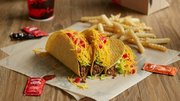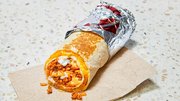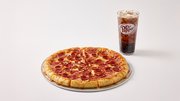News
Lawmakers want to head off glut of fast-food lawsuits
Michael Gonzales figures he eats junk food at his own risk. At a downtown McDonald's for lunch, Gonzales said Tuesday that people should not sue restaurants if they become obese by consuming such delights as burgers and fries.
January 13, 2004
Jan 14, 2004 12:25 pm US/Mountain DENVER (AP)-- Michael Gonzales figures he eats junk food at his own risk. At a downtown McDonald's for lunch, Gonzales said Tuesday that people should not sue restaurants if they become obese by consuming such delights as burgers and fries. "They know what they are getting themselves into," Gonzales of suburban Northglenn said. "They're going to a restaurant. So it's their fault. It's just like smoking. If you buy a pack of cigarettes, you know the risk involved." Lawmakers took a preliminary step Tuesday to prevent such lawsuits with a bill to prohibit consumers who suffer health problems because of a junk food diet from suing manufacturers that make it and fast-food restaurants that serve it. The Senate Judiciary Committee approved the measure (Senate Bill 20) on a 6-1 vote and sent it to the full Senate for debate. Senate Majority Leader Mark Hillman, R-Burlington, said he decided to draft the bill after hearing about lawsuits consumers have filed in other states against restaurants alleging their food caused health problems. "We should just head this off at the pass and say these lawsuits will not be entertained in Colorado," he told the committee. Sen. Peter Groff, a Denver Democrat who voted for the measure, said lawmakers may be going too far. "Do you think there should be some warning to the public that eating this food is bad for your health?" he asked. A recent spate of lawsuits across the country has food companies and restaurants fearful that they could be blamed for obesity. Last year, a federal judge in New York dismissed two class-action lawsuits blaming McDonald's for making people fat. In September, the judge said plaintiffs failed to show that the fast-food chain misled consumers into believing its food was nutritious and part of a healthy diet. He dismissed an earlier version in January that claimed McDonald's food caused health problems in children. The Oak Brook, Ill.-based McDonald's has said its menu options can fit into a healthy, well-balanced diet. The Centers for Disease Control and Prevention regards fat as a leading health problem, estimating that 15 percent of children and 65 percent of all adults are overweight. The government may encourage or even require restaurants to include labels on their menus specifying how many calories are in each item. During the committee hearing, JoAnn Groff, a spokeswoman for the Colorado Retail Council, representing convenience stores and delivery companies, asked lawmakers to reject the proposal. She said she lost 60 pounds wolfing down cheeseburgers as part of the Atkins diet. She later gained back the weight, but said she has only herself to blame. "It's my own choice," she told legislators. Outside McDonald's, Susan Wolf said she knows the meal she picked up was fattening but that she could not blame the restaurant. "I was kind of in a bad mood and it's a comfort food. But it was my choice," she said.









